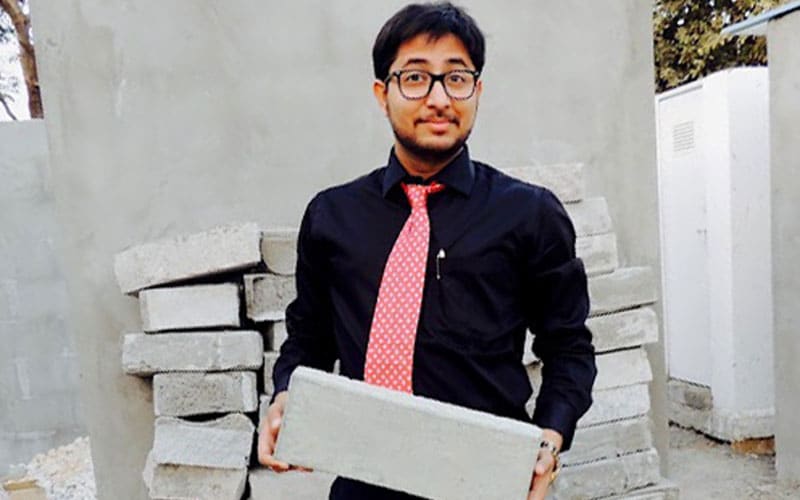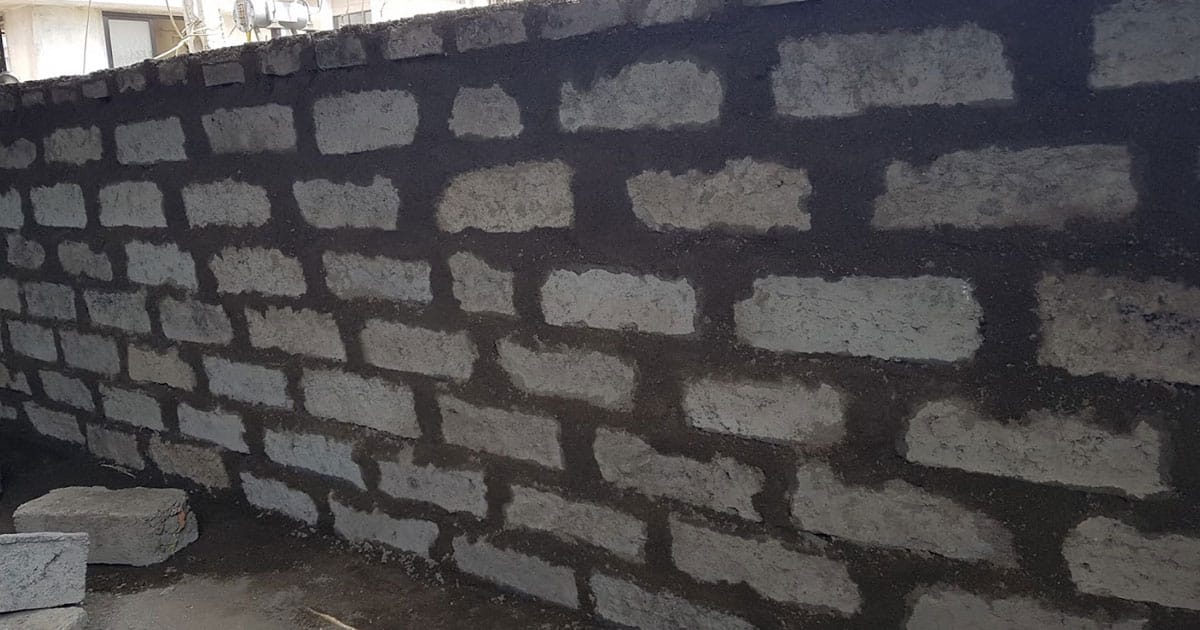COVID-19 has not just affected livelihood but also threatened the environment. The single-use surgical masks and Personal Protective Equipment (PPE) kits generate a massive amount of biomedical waste ending up in the seashores and landfills.
This 27-year-old environmentalist has come up with a solution to fix the amount of garbage produced during the pandemic, exceeding India’s waste management capability.
Dr. Binish Desai, popularly knows as the ‘Recycle Man of India’, is turning biomedical wastes generated during the pandemic into eco-friendly bricks.

“When I was 11 years old, I was in my classroom, I wrapped chewing gum with a piece of paper. I put it inside my pocket and forgot to throw it away. After a couple of days, I found the same in my pocket. It had hardened and looked like a solid block. This gave me an idea to come up with advanced brick 1.0. In 2010, at the age of 16, I founded my firm, Eco-Eclectic Tech Group,“ Binish Desai said, speaking to Life Beyond Numbers.
Binish then produced the prototype of a P-block by wrapping chewing gum in the paper.
“Brick 2.0 is an advanced version of brick 1.0, made using waste paper and binders. Now, we have added components such as used PPE and masks, which account for 52 percent of the total, while the rest is made up of paper waste and a binder,” he said.
Brick 2.0 is three times stronger than any red bricks. It adheres nicely to the plaster, is lighter, recyclable, and costs half as much as the conventional bricks.
The production method is simple and more environmentally friendly.
“We adhere to all pollution control regulations. To begin with, we make environmental bins and place them in public areas where masks can be discarded,” Binish Desai said.
“The material is stored for 72 hours in isolation. In this procedure, we employ around 1500 underprivileged women from adjacent villages. The primary goal is to empower women while also encouraging long-term sustainability,” Binish further added,
The brick costs Rs. 2.80 each. Its low cost makes it even more appealing to the general public.

Not just in India, they are now getting calls from all over the world enquiring about the products and getting orders from Australia, the United States, the Philippines, and Brazil.
Pooja Entertainment, a production house, is now collaborating with Dr. Binish Desai to recycle its production waste and reduce its carbon footprint.
“I was worried about the biomedical waste produced like masks and PPE kits during the shoots. We decided to have a sustainable environment in the sets, and having Dr. Binish onboard has made that possible. We will make sure that eco-friendly is a part of our productions, whether it’s the building materials used to design buildings on sets, the plastic utilized, PPE kits and masks, or perhaps even the tea and coffee sediments.” Producer Deepshikha Deshmukh said.
Also, read: This Young Entrepreneur Upcycles Scrap Tyres To Make Sustainable And Fashionable Footwear
Binish says, “For the first time I am collaborating with a film production house. The aim of Pooja Entertainment and its commitment to change surprised me and I am looking forward to work towards creating a change together through sustainability.”
Ida is the latest project where Binish and his team is going to make crockery out of waste.
Hailing from a small town in Surat, his family members were against his passion. But it’s his will and passion towards his work that brought him this far.
“I always follow four things; observe, fail, learn and solve. I see India as a leading solution provider of zero-waste technologies where we make locally and sell globally. India has recycling and reuse in our culture and, our moms are the biggest recyclers. So let us get inspired by our roots and innovate,” he added.
Dr. Binish Desai aims to create a solution to every type of waste in India and make it a zero-waste country by 2025.

